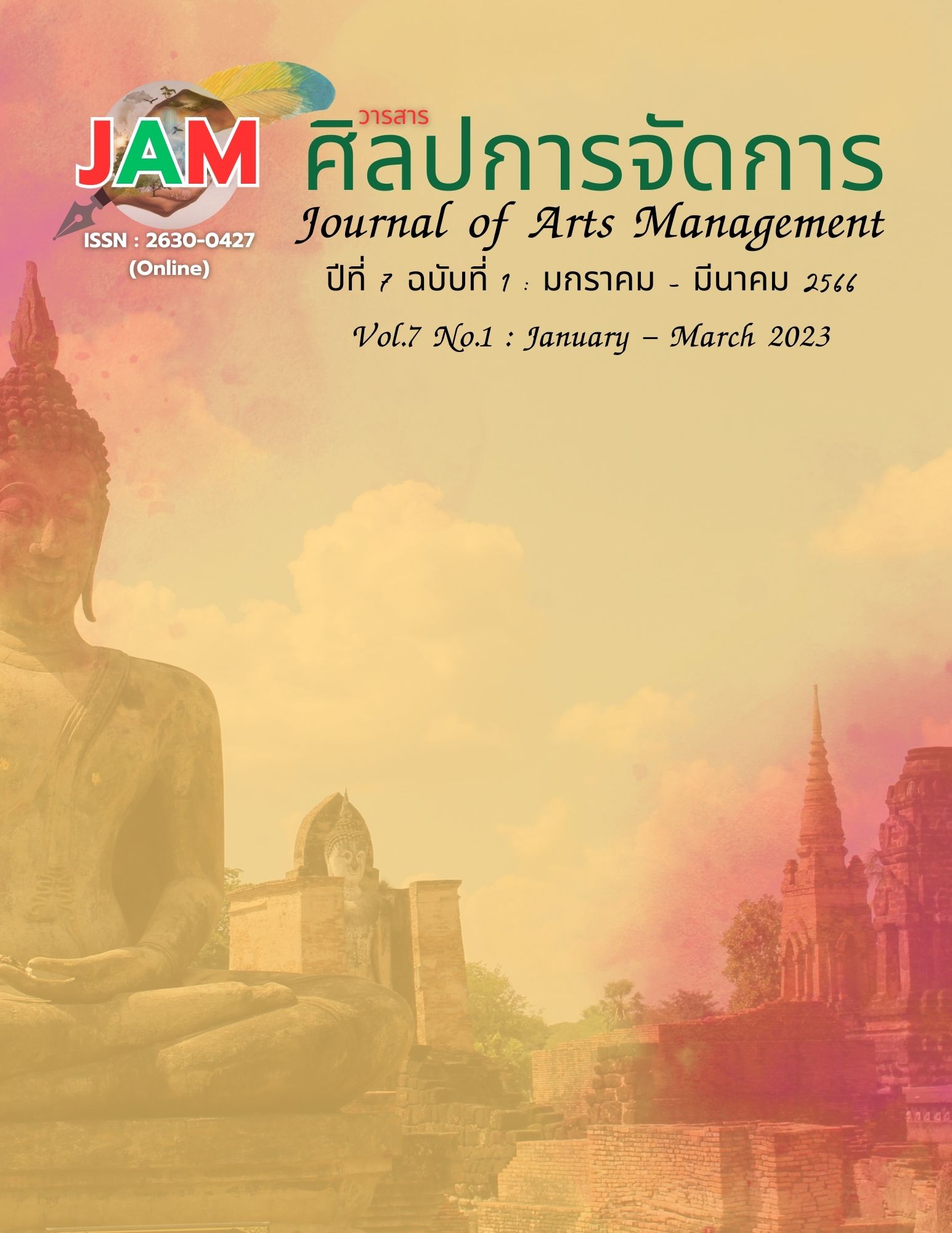Sports Arbitration Model Recommended to Sports Authority of Thailand
Main Article Content
Abstract
The aim of this study was to: 1) study sport dispute resolutions arising from laws governing sport in Thailand, implementation of sport arbitration in foreign countries, and a guideline to establish sports arbitration, including objectives, form, structure, functions, and disadvantages that may arise from sports arbitration; and 2) recommend the Sports Authority of Thailand (SAT) revise the governing laws to adopt sports arbitration as a special mechanism for sport dispute resolution. The study used a qualitative approach with documentary research and in-depth interviews with members of the sport authority and professional sport associations: the SAT's six executive members and five department heads, nine representatives of professional sport associations in Thailand, and 52 sport community participants. The results showed the representatives and participants agreed with the establishment of sports arbitration because it will be able to resolve the disputes appropriately because they are based on sports technical problems and sports event schedules. Consequently, the resolution requires sports specialists and a speedy trial. In the end, the study recommended SAT revise the Sports Authority of Thailand Act 2015, the Professional Sports Promotion Act 2013, and the Boxing Act 1999 to adopt sports arbitration for implementing the sport disputes resolution policy according to SAT’s Sport Strategic Development Plan of 2021–2027.
Article Details

This work is licensed under a Creative Commons Attribution-NonCommercial-NoDerivatives 4.0 International License.
Views and opinions appearing in articles in the Journal of Arts of Management It is the responsibility of the author of the article. and does not constitute the view and responsibility of the editorial team I agree that the article is copyright of the Arts and Management Journal.
References
Blackshaw, I. (2003). The Court Arbitration for Sport: An International Forum for Settling Disputes Effectively ‘Within the Family of Sport. Entertainment Law Journal, 2(2), 61-82.
Dimitrios, P. (2004). International Sports Rules Implement-Decisions Executability: The Bliamou Case. Marquette Sports Law Review, 15(1), 1-12.
Findlay, H.A. (2005). Rules of a Sport- Specific Arbitration Process as an Instrument of Policy Making. Marquette Sports Law Review, 16(1), 73-98.
Gardner, P.C. (2011). Sport-Specific Arbitration and Procedural Justice[Master’s Thesis, Brock University].
Green, B.C. (2005). Building Sport Program to Optimize Athlete Recruitment, Retention, and Transition: Toward a Normative Theory of Sport development. Journal of Sport Management, 19(4), 233-253.
Mitten, M.J. (2014). The Court of Arbitration for Sport and its Global Jurisprudence: international Legal Pluralism in a World Without National Boundaries. OHIO State Journal on Dispute Resolution, 13(1), 1-44.
Naluang, S., & Jongsathittavorn, C. (2021). Obligations of Thailand Towards WADA Code 2021. Assumption University Law Journal, 12(2), 90-109.
Richard, J., Hunter, Jr. & Shanon, J.H. (2017). The Court of Arbitration for Sport: Does the United States Need a Similar Court for Resolving Issues in Sport. Journal of Education and Social Policy, 7(1), 8-21.
Rigozzi, A., & Robert-Tissot, F. (2015). Consent in Sports Arbitration: Its Multple Aspects. In Geisinger, E., & Trabaldo de Mestral, E. (Editors), Arbitration as a Coach for Other Players (pp.59-94). Juris Net.
Rigozzi, A., William, M., & Levy, K. (2013). Sport Arbitration. The European, Middle Eastern and African Arbitration Review, 16, 12–22.
Scroetoeter, U.G. (2017). Ad Hoc or Institutional Arbitration. Contemporary Asia Arbitration Journal, 10(2), 141-199.
Sports Authority of Thailand. (2021a). Sports Authority of Thailand’s Strategic Plan of 2021-2027. Sports Authority of Thailand.
Sports Authority of Thailand. (2021b). Sanction History. Sports Authority of Thailand.
Steadman, M. (2021). Lindland v. United States of America Wrestling Association: The Role of Arbitration and Federal Courts in the Marketing of an Olympic Success. DePaul Journal of Art, Technology and Intellectual Property Law, 11(1), 133-156.
Tanarach, A. (2014). Legal Issues That Cause Delays in Resolving Disputes Boxing Act 1999. Academic Journal, Phranakhon Rajabhat University, 5(2), 11-20.


